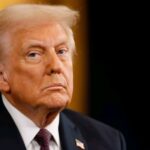LOS ANGELES, CALIFORNIA — Protests have surged across Los Angeles following a series of coordinated immigration raids by U.S. Immigration and Customs Enforcement (ICE), prompting a swift and controversial federal response from President Donald J. Trump.
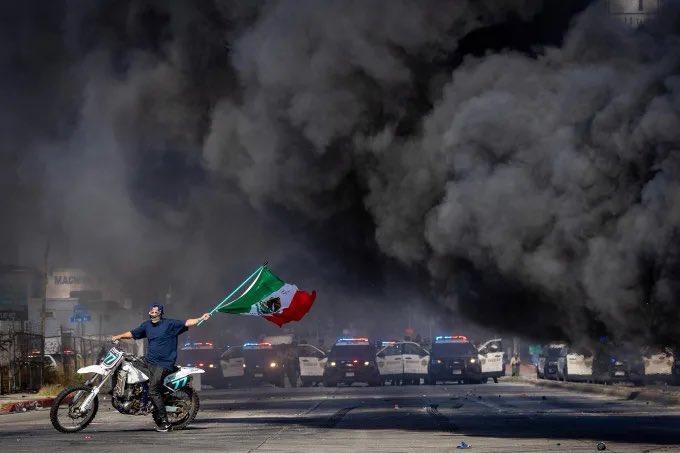
What began as peaceful demonstrations against the mass arrests of undocumented workers quickly escalated into scenes of civil unrest. Over the weekend, demonstrators blocked the 101 Freeway, gathered en masse in Boyle Heights, and converged outside the federal detention center in downtown Los Angeles. Isolated incidents of vandalism, including the torching of autonomous Waymo vehicles and confrontations with law enforcement, have been reported.
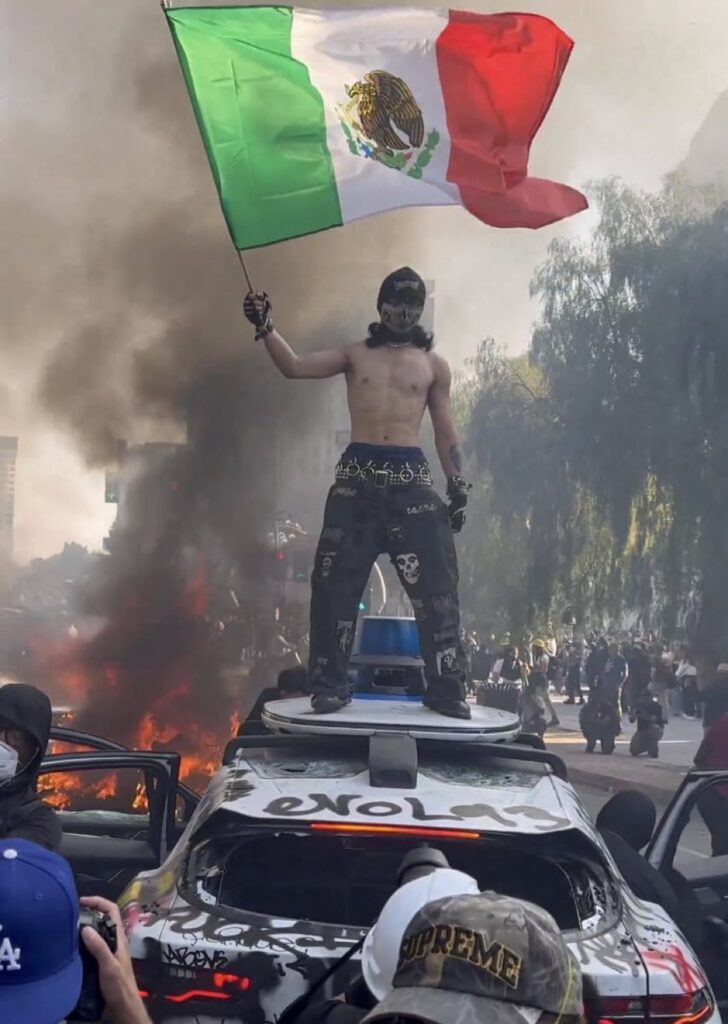
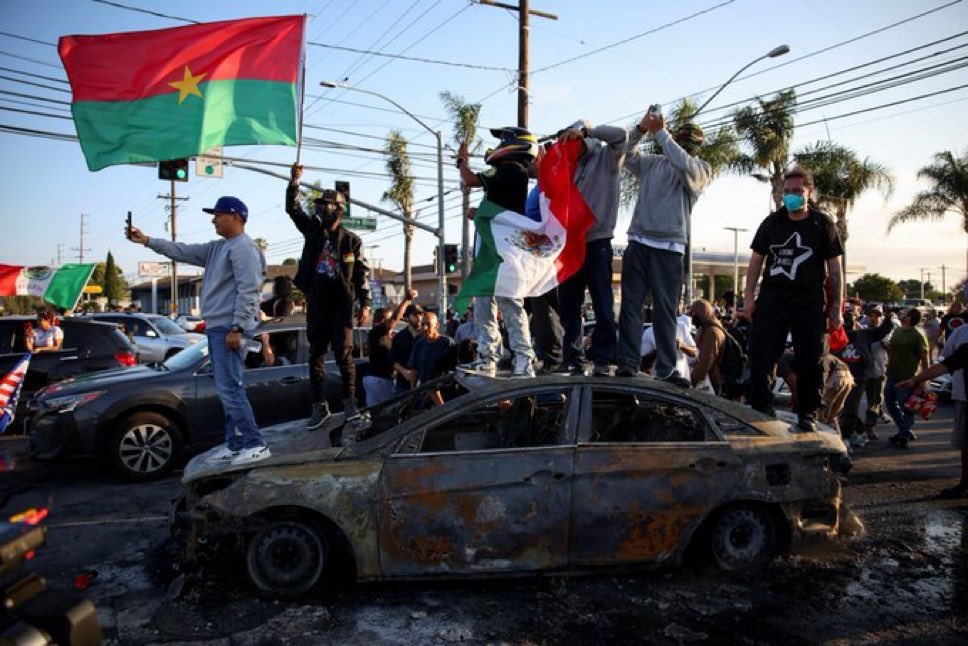
On Sunday evening, President Trump authorized the deployment of 2,000 National Guard troops to Los Angeles, invoking Title 10 authority—a rare and contentious move that bypassed state approval. The president’s decision has drawn sharp criticism from California Governor Gavin Newsom, who denounced the action as “unlawful” and vowed to pursue legal remedies.
“We will not be dictated to by a president who sees federal force as a campaign tactic,” Governor Newsom declared during a press conference on Monday.
Mayor Karen Bass, echoing the governor’s sentiments, condemned the deployment as “chaotic and unnecessary,” insisting that local authorities were managing the protests effectively before federal forces intervened.
In a series of posts on his Truth Social platform, President Trump justified the move by claiming Los Angeles was under siege from what he termed a “migrant invasion.” He criticized local leaders as “incompetent,” declared that masks would be banned at all protests, and used the slogan “They spit, we hit”—a phrase that has since been widely rebuked by civil rights advocates as inflammatory.
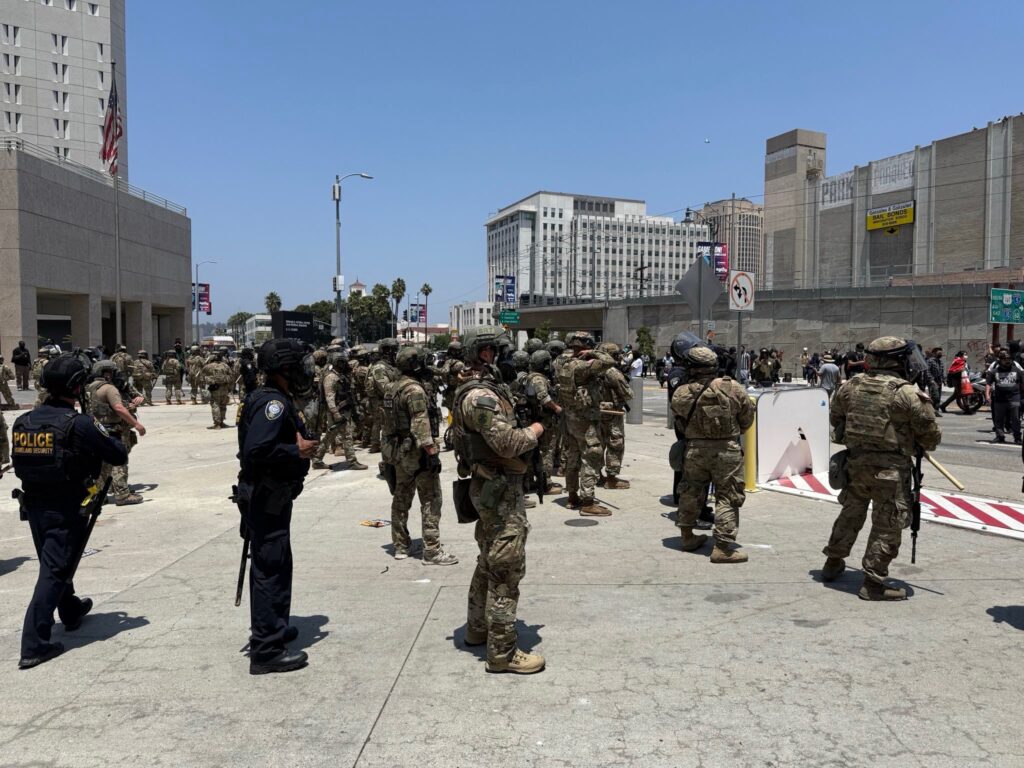
“We’re not going to let radical mobs hide behind masks and burn cities anymore,” Trump stated at a campaign stop in Arizona.
Civil liberties organizations, including the ACLU and Human Rights First, have condemned the president’s rhetoric and deployment as an abuse of executive power.
“This is not about public safety—it’s about political theater,” said ACLU spokesperson Daniel Kim. “Federal troops patrolling American streets without state consent sets a deeply troubling precedent.”
As of this report, more than 80 protesters have been arrested, and at least 15 people have been hospitalized with injuries related to rubber bullets and tear gas. The protests have entered their third day, with tensions still high near key government buildings.
Military officials have confirmed that Marines at Camp Pendleton are on heightened alert, suggesting that further federal intervention remains on the table if unrest persists.
Political and Legal Ramifications
Legal scholars are already debating the constitutional implications of the president’s unilateral use of federal military personnel on domestic soil. California’s attorney general has launched an inquiry into possible violations of the Posse Comitatus Act and other federal statutes.
Meanwhile, Democratic lawmakers in Congress are drafting a resolution condemning the president’s actions and calling for an emergency oversight hearing.
Conclusion
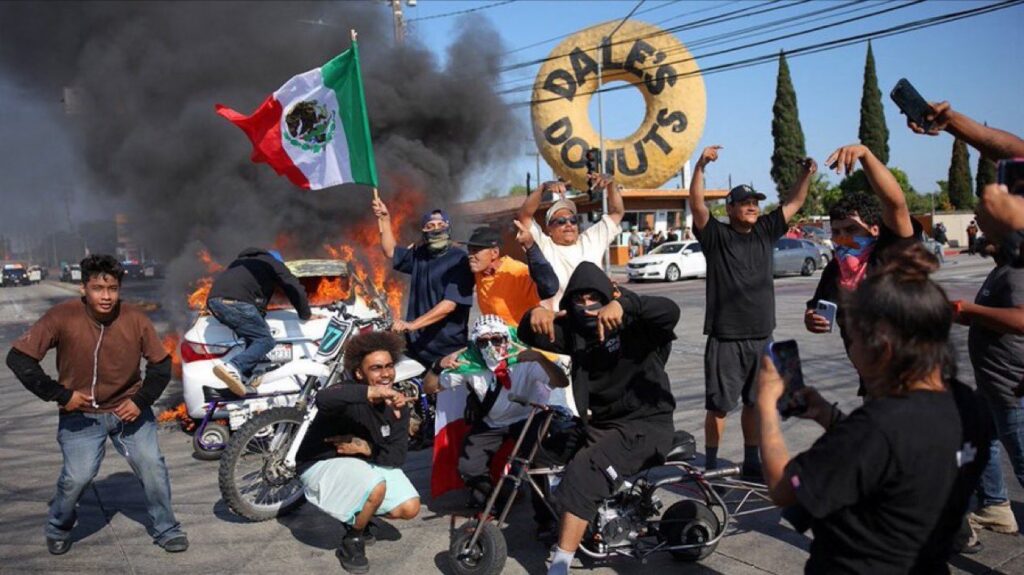
What started as outrage over immigration enforcement has now evolved into a broader national conversation about federal authority, civil liberties, and the role of protest in a democratic society. With President Trump doubling down and local leaders pushing back, Los Angeles has become the new epicenter of a deeply polarized America.


